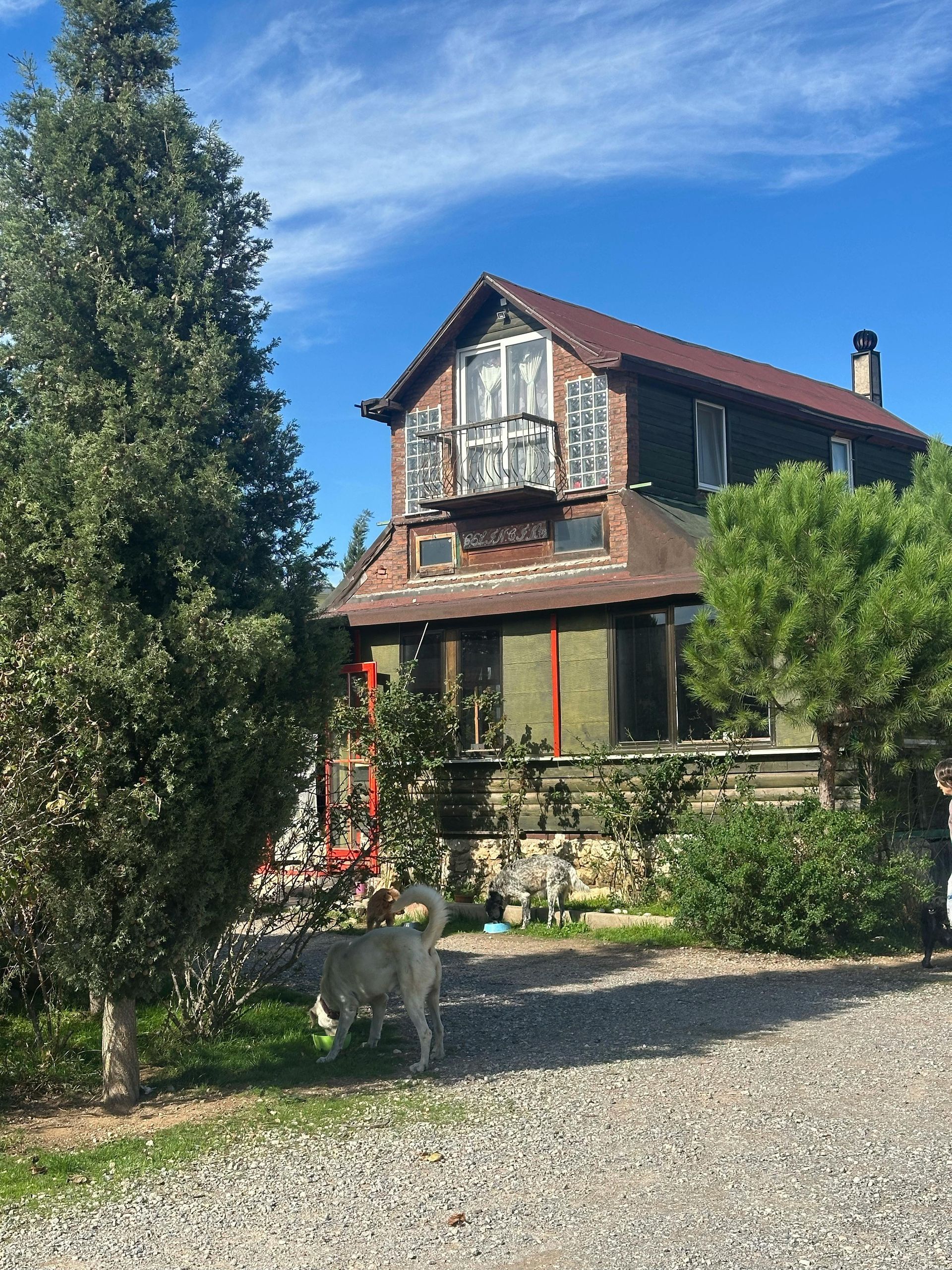Blog

Running a small business involves balancing opportunity and risk. While disputes can’t always be avoided, many legal problems can be prevented with proactive planning and clear communication. Here are several ways small business owners can reduce legal risk before issues arise. Choose the Right Business Structure The legal structure of your business affects liability, taxes, and operations. Forming the right entity can help protect personal assets and clarify ownership responsibilities from the outset. Use Clear, Written Agreements Handshake deals and informal arrangements often lead to misunderstandings. Well-drafted contracts with customers, vendors, and partners help set expectations and reduce disputes over payment, performance, deliverables, or scope of work. Review Commercial Leases Carefully Commercial leases often contain long-term obligations and hidden costs. Understanding lease terms before signing can prevent costly surprises and future conflicts with landlords. Address Employment Issues Early Clear policies, proper classification of workers, and consistent practices can help prevent disputes with employees or contractors. Early legal guidance can help ensure compliance and reduce exposure. Plan for Disagreements Even healthy businesses encounter conflict. Including dispute resolution provisions in contracts and addressing issues promptly can help resolve problems before they escalate into litigation. Proactive legal planning isn’t about expecting failure—it’s about building a strong foundation that allows your business to operate with confidence and flexibility. Call Deppman Law PLC If you own or are starting a small business and want to reduce legal risk before problems arise, Deppman Law PLC can help. We work with Vermont business owners to put practical safeguards in place and address issues early. Contact Deppman Law PLC to schedule a consultation and protect your business’s future.

People frequently wait to contact a lawyer until a problem feels urgent or unavoidable. By that point, costs may be higher and stress levels are often elevated. In many situations, speaking with a lawyer early can help prevent small issues from becoming much larger ones. Here are some common scenarios where early legal advice can make a meaningful difference. Before Signing a Contract Whether it’s a lease, business agreement, vendor contract, or settlement document, contracts carry long-term consequences. A quick review before signing can help identify unclear terms, unexpected obligations, or risks you may not have noticed. During Major Life Changes Events like marriage, divorce, having children, or buying property often trigger legal considerations. Early guidance can help ensure important steps—such as updating estate plans or addressing property rights—aren’t overlooked. When Starting or Growing a Business Choosing the right business structure, drafting agreements, and understanding liability risks are much easier at the beginning than after problems arise. Early legal planning can protect both personal and business assets. If a Dispute Is Developing If tensions are rising with a tenant, business partner, neighbor, or family member, early advice can help you understand your rights and avoid actions that could escalate the situation or weaken your position. After an Injury or Property Incident Whether you were injured or someone was hurt on your property, early legal input can help preserve important information and guide next steps before statements are made or deadlines are missed. Talking to a lawyer doesn’t mean you’re headed for court. In many cases, it’s about understanding your options, clarifying risks, and making informed decisions before a situation becomes more complicated. Call Deppman Law PLC If you’re facing a legal question or simply wondering whether you should speak with an attorney, Deppman Law PLC is here to help. We offer practical guidance designed to address issues early and thoughtfully. Contact Deppman Law PLC to schedule a consultation and get clear answers before problems grow.

Many people assume legal planning is only necessary later in life or after major milestones. In reality, every adult—regardless of age, income, or family situation—should have a few core legal documents in place. These documents help protect your wishes, your finances, and the people you care about when life takes an unexpected turn. Here are five legal documents every adult should consider having. 1. A Will A will outlines how your property should be distributed after your death and allows you to name an executor to carry out those wishes. If you have minor children, a will is also where you can name a guardian. Without a will, Vermont law determines who inherits your assets, which may not reflect your intentions. 2. Durable Power of Attorney A durable power of attorney allows you to appoint someone you trust to manage financial and legal matters if you become unable to do so yourself. This can include paying bills, managing property, or handling business affairs. Without this document, loved ones may need to seek court approval to act on your behalf. 3. Health Care Power of Attorney This document names a person to make medical decisions for you if you are unable to communicate your wishes. It ensures someone you trust (not a court) has the authority to work with doctors and make important health care decisions during a medical crisis. 4. Advance Directive (Living Will) An advance directive allows you to express your preferences for medical treatment, including end-of-life care. It provides guidance to your health care agent and medical providers and helps reduce uncertainty and stress for family members during difficult moments. 5. Beneficiary Designations While not a standalone document in the traditional sense, beneficiary designations on retirement accounts, life insurance policies, and certain financial accounts are critical. These designations often override a will, so keeping them up to date is essential to ensure assets go where you intend. Having these documents in place is not about planning for the worst, it’s about making thoughtful decisions while you can and sparing your loved ones unnecessary confusion or conflict later. Call Deppman Law PLC If you’re unsure which documents you need or whether your existing plans still reflect your wishes, Deppman Law PLC can help. Our team works with individuals and families to create clear, practical legal plans tailored to their lives. Contact Deppman Law PLC to schedule a consultation and take the next step toward protecting what matters most.

What sellers must legally share with buyers…and what happens if they don’t Selling a home or property in Vermont involves several legal steps, but one of the most important — and often overlooked — is the requirement to disclose information about the property’s condition. Unlike some states where detailed, standardized disclosure forms are required by law, Vermont takes a slightly different approach. Still, sellers are obligated to provide accurate and truthful information about the property, particularly regarding any known defects or issues that could impact its value or use. Do I Have to Disclose Defects When Selling My Property in Vermont? In Vermont, there is no statewide mandatory property disclosure form required by law. However, Vermont courts have clearly established that sellers must not make material misrepresentations or intentionally withhold information about known defects. In simple terms: you don’t have to volunteer every detail, but you can’t lie or conceal something significant. Because of this, most sellers — especially those working with real estate agents — complete a Property Information Report or another disclosure form anyway. These documents typically cover the age and condition of systems like plumbing, roofing, electrical work, heating, water supply, septic tanks, and more. Sellers may also be asked to disclose whether the home contains asbestos, lead paint, structural damage, or boundary disputes. If a seller is unsure about a particular item (like the age of a roof), they can state that they're uncertain — but they cannot knowingly provide false information. What Counts as a “Material Defect”? A material defect is any issue that could affect the value or livability of the property. Examples include: A leaky roof or foundation cracks Water damage or mold problems A malfunctioning water heater or furnace Infestations Boundary disputes or title issues Unsafe drinking water or septic system failure Hazardous materials, such as asbestos or a buried oil tank If a seller is aware of such issues and fails to disclose them — or worse, attempts to hide them — they could be held liable for fraud or misrepresentation, even after the sale has closed. What Happens If a Seller Fails to Disclose a Known Issue? If a buyer later discovers an undisclosed problem with the property, the seller could face legal consequences, such as: Paying for repairs or replacement of damaged or defective systems Compensating the buyer for a loss in the property’s market value Cancellation of the sale , in extreme cases Punitive damages if the court finds evidence of willful fraud The burden is often on the buyer to prove that the seller knew about the defect and intentionally failed to disclose it. That’s why many buyers in Vermont choose to work with qualified real estate attorneys and inspectors when purchasing property, especially when buying older or rural homes. What About “As Is” Sales? Even if a property is sold “as is,” a seller is still responsible for disclosing any known material defects. The “as is” clause simply means that the seller will not make repairs before the sale — not that they’re excused from telling the truth about the property’s condition. Best Practices for Sellers To minimize risk: Be honest about the property, even if it means disclosing costly issues. Use standardized property disclosure forms, even if not technically required. Keep records of inspections, repairs, and maintenance. Consult an attorney if you’re unsure about what to disclose. Disclosing a defect upfront is almost always cheaper — and far less stressful — than dealing with a lawsuit later. Need Legal Guidance? Buying or selling property in Vermont can be complicated, especially when it comes to disclosure obligations. At Deppman Law PLC, we help clients manage real estate transactions with clarity and confidence. Contact our office today to discuss your real estate questions and ensure your transaction is handled the right way, with the protection and peace of mind you deserve.

Understanding retirement accounts, health insurance, and estate planning in later-life divorce Divorce is challenging at any age. But when it occurs later in life, it comes with a unique set of emotional, financial, and legal considerations. Known as “gray divorce,” this trend is on the rise nationwide, and Vermont is no exception. Whether it’s a couple who’s grown apart after decades together, a second marriage that didn’t work out, or an unexpected separation due to changing needs or values, older Vermonters face specific challenges when untangling their lives. If you’re over 50 and thinking about divorce — or already in the process — it's important to understand how Vermont law impacts key issues like retirement savings, health insurance, and long-term financial security. Dividing Retirement Benefits in Gray Divorce One of the biggest financial concerns for older couples is how divorce will affect retirement savings. In Vermont, retirement accounts — including 401(k)s, pensions, IRAs, or other investments — are generally considered marital property if they were earned or contributed to during the marriage. These assets are subject to equitable distribution — meaning a fair division, not necessarily an equal one. However, splitting retirement accounts is not as simple as taking a number and dividing it in half. Depending on the type of account, you may need a Qualified Domestic Relations Order (QDRO) or other legal tools to divide funds without triggering taxes or penalties. A thoughtful approach is key to ensuring both spouses can maintain financial stability during retirement. Health Insurance After Divorce In a gray divorce, health insurance can be a major issue — especially if one spouse has been relying on the other’s employer-based coverage. Once the divorce is finalized, coverage typically ends for the non-employee spouse. Here are options to consider: COBRA— Allows temporary continuation of coverage (at full cost) for up to 36 months. Vermont Health Connect— Offers individual health insurance plans, sometimes with subsidies depending on income. Medicare Eligibility— If one or both spouses are 65+, Medicare may be available — but understanding enrollment timelines and supplemental coverage options matters. Making the right choice can have a significant impact on both cost and quality of care during your later years. Estate Planning Must Be Updated Many divorcing couples overlook estate planning — but for those 50 and older, it’s essential. A divorce should prompt a full review of all important documents, including: Wills and trusts Powers of attorney Health care proxies Beneficiary designations (insurance policies, retirement plans, etc.) These documents likely name a spouse in key roles — and unless updated, they may leave your ex-spouse with unintended control over your medical, financial, or estate matters. Vermont courts encourage this reassessment to ensure your future wishes are clearly and legally defined. Emotional and Lifestyle Impacts Gray divorce isn't just about finances — it's about rebuilding life at a stage when identities are deeply intertwined. Many older adults face questions like: Where will I live now? How will I manage life alone after decades of marriage? What does my social circle look like now? Navigating these questions with support — both legal and personal — can help create a healthy path forward. Legal Guidance During a Later-Life Divorce At Deppman Law PLC, we understand the financial and emotional complexities of gray divorce in Vermont. Our goal is to help you make confident, informed decisions about your future. Contact our office today to schedule a consultation and ensure that your next chapter is protected, both legally and financially.

A Legal Guide for Landlords When Tenants Default Even the best landlord-tenant relationships can run into trouble. When a commercial tenant fails to pay rent or violates the terms of the lease, landlords may need to take decisive legal action to protect their investment. While Vermont law offers clear procedures for removing a defaulting commercial tenant, the process is technical, and missteps can result in costly delays. Step 1: Review the Lease Agreement Before proceeding with an eviction, start by reviewing the commercial lease. Many Vermont commercial leases include provisions outlining: What constitutes a default (e.g., late rent, illegal use, abandonment) Required notice periods Tenant remediation or cure rights Acceleration clauses (allowing the landlord to demand full payment of remaining rent) These contractual terms often dictate how and when you can initiate an eviction, and failing to follow them exactly can undermine your case in court. Step 2: Serve the Proper Notice In Vermont, before filing for eviction, landlords must provide written notice to the tenant. This is known as a “Notice to Quit” or “Notice of Default,” depending on the circumstance. The notice must clearly describe: The nature of the default Any opportunity to cure (if allowed under the lease) The deadline by which the tenant must remedy the issue or vacate In most commercial cases, the notice period is specified in the lease. If it’s not, general Vermont law applies — and timelines must be followed precisely. Step 3: File an Eviction Action (if Necessary) If the tenant doesn’t cure the default or refuses to vacate, the next step is filing a commercial eviction lawsuit, also known as an “ejectment action,” in the appropriate Vermont Superior Court. This lawsuit asks the court to legally terminate the lease and order the tenant to leave the premises. Key steps in this phase include: Filing the complaint Having it properly served on the tenant Attending court hearings Obtaining a court order for possession if you prevail Commercial evictions move faster than residential evictions in Vermont, but they still require meticulous adherence to court rules and procedures. Step 4: Enforce the Court Order Once the landlord wins the case, the court issues a Writ of Possession, which authorizes the sheriff to remove the tenant from the property. It is illegal under Vermont law for a landlord to lock out a tenant or remove property without this court-issued writ. Even if the landlord is owed large sums of unpaid rent, self-eviction is not allowed. Following proper procedure is essential to avoid legal exposure and additional delays. What About Unpaid Rent or Damages? Along with regaining possession, landlords are entitled to pursue outstanding rent, late fees, legal costs, and other damages through the lawsuit or a separate civil action. Leases with “acceleration clauses” may allow landlords to demand the full value of unpaid future rent, but courts evaluate these terms carefully. Working with an Attorney Commercial evictions are rarely simple. They require careful coordination, attention to notice requirements, and sensitive handling of lease-specific terms. A commercial real estate attorney not only ensures all procedures are followed but can also help negotiate settlements that avoid costly litigation altogether. Contact Deppman Law PLC today to ensure that your next move is strategic, legally sound, and efficient.

Estate planning may sound like something only the wealthy or elderly need to worry about, but in truth, it’s an essential part of life planning for every adult—regardless of age, wealth, or family structure. Whether you're a small business owner in Montpelier, a retiree in Middlebury, or a young parent in Burlington, having a clear and legally sound estate plan can protect your loved ones, preserve your assets, and provide peace of mind. In Vermont, as in most states, there are five core documents that form the foundation of a comprehensive estate plan. Each plays a specific role in ensuring your wishes are respected and your affairs are handled according to your preferences—both during your lifetime and after your death. Here’s a closer look at the five essential estate planning documents every Vermonter should have: 1. Last Will and Testament A will is the cornerstone of any estate plan. It outlines how you want your assets to be distributed after your death and names an executor to manage your estate. If you have minor children, your will is also the document where you nominate a guardian for them. Without a will, your estate will be distributed according to Vermont’s intestacy laws—which may not reflect your wishes. This process can be time-consuming, emotionally draining for your family, and lead to unintended outcomes. Even if your estate is modest, a will ensures clarity and can help your loved ones avoid unnecessary legal complications during an already difficult time. 2. Durable Power of Attorney A durable power of attorney (POA) allows you to name someone to handle your financial and legal affairs if you become incapacitated. This could include paying your bills, managing investments, filing taxes, or making other important decisions on your behalf. In Vermont, a POA remains in effect even if you become mentally or physically unable to manage your own affairs—hence the term durable. Without a POA, your loved ones may have to go through a costly and time-consuming court process to gain the authority to act on your behalf. Choosing a trusted agent now can spare your family considerable stress later. 3. Advance Directive for Health Care Also known as a health care proxy or medical power of attorney, an advance directive allows you to appoint someone to make medical decisions for you if you are unable to do so yourself. This includes decisions about life-sustaining treatments, organ donation, and end-of-life care. Vermont has a specific form for advance directives, and completing one ensures your health care wishes are known and legally binding. Without this document, important medical decisions may fall to someone who doesn’t know your preferences—or disagreements among family members could create unnecessary tension. 4. HIPAA Authorization The Health Insurance Portability and Accountability Act (HIPAA) protects the privacy of your medical records, but it can also make it difficult for loved ones to access information in an emergency. A HIPAA authorization allows you to name individuals who can access your medical records and communicate with your doctors. This is especially important if you have multiple family members who may need to coordinate your care or advocate on your behalf. Without this document, your loved ones may be left in the dark at a time when fast, informed decisions are critical. 5. Revocable Living Trust (Optional, But Strongly Recommended) While not every Vermonter needs a revocable living trust, it can be a powerful tool—especially if you own real estate, have a blended family, or want to avoid probate. A revocable living trust allows you to transfer ownership of your assets into a trust during your lifetime, with instructions for how they should be managed and distributed. You retain control of the assets while you're alive, and after your death, they can be distributed without going through the Vermont probate process. A trust also provides greater privacy, flexibility, and control, and can be particularly helpful for managing out-of-state property or planning for incapacity. Take Control of Your Legacy Estate planning isn’t just about preparing for the unexpected—it’s about making intentional decisions that protect your family, safeguard your assets, and reflect your values. At Deppman Law PLC, we help individuals and families throughout Vermont create customized estate plans that meet their specific needs—no matter how simple or complex. Whether you’re starting from scratch or need to update existing documents, we’re here to guide you through every step with care and clarity. Contact Benj or Lesley today to schedule a consultation and begin building your estate plan with confidence.

When you're running a small business, hiring the right team is one of the most important decisions you'll make. But equally important is understanding the laws that govern those employment relationships—including the principle of at-will employment. Vermont, like most states, follows the at-will employment doctrine—but that doesn’t mean employers can fire employees for just any reason. In this article, we break down what at-will employment means in Vermont, its legal limits, and how small business owners can protect themselves and their employees through clear policies and smart practices. What Does “At-Will Employment” Mean? At its core, at-will employment means that either the employer or the employee can terminate the employment relationship at any time, for any reason—or for no reason at all—as long as the reason is not illegal. In Vermont, this principle applies by default unless there is a contract (written or implied) stating otherwise. So unless you’ve signed an agreement specifying terms for termination, the employment is presumed to be at-will. Legal Limits on At-Will Employment While at-will employment gives employers a fair amount of flexibility, it is not unlimited. There are important exceptions and protections that every Vermont business owner must understand: Discrimination Laws Employers may not fire employees on the basis of protected characteristics such as: Race, color, or national origin Sex, gender identity, or sexual orientation Age (40 and over) Disability Religion Pregnancy Marital status These protections come from both federal laws (like Title VII of the Civil Rights Act and the ADA) and state laws under the Vermont Fair Employment Practices Act (VFEPA). Vermont law also offers broader protections than federal law in some areas. Retaliation and Whistleblowing An employee cannot be fired for: Reporting illegal activity or safety violations Filing a workers’ compensation claim Taking protected medical or family leave Complaining about harassment or discrimination Participating in a workplace investigation These are considered forms of retaliation, and terminating someone for these reasons—even in an at-will setting—could expose your business to liability. Breach of Contract Even if you didn’t intend to create an employment contract, certain policies, offer letters, or handbooks may create implied contractual obligations. For example, promising “job security” or suggesting that employees can only be fired “for cause” might override the at-will presumption. Best Practices for Vermont Employers To make sure you’re staying on solid legal ground while managing your team, consider the following best practices: Use Clear, Written Offer Letters: When hiring employees, include a statement in the offer letter that the position is “at-will” and that either party can end the relationship at any time, with or without cause or notice. Draft a Thoughtful Employee Handbook: A good handbook should outline key policies while preserving your rights as an employer. Include an at-will disclaimer and reserve the right to revise policies at any time. Train Your Managers: Many employment claims stem from inconsistent or poorly communicated decisions. Make sure supervisors understand what at-will employment does—and doesn’t—mean, and that they apply policies fairly. Document Performance Issues: Even in an at-will state, it’s wise to maintain records of warnings, performance reviews, or disciplinary actions to show a legitimate, non-discriminatory basis for termination decisions. Consult Legal Counsel Before Termination: Some situations are straightforward—but others are more complex. If you're planning to terminate an employee who recently complained, took medical leave, or belongs to a protected class, it’s best to speak with an attorney before proceeding. Vermont-Specific Considerations Vermont has a strong culture of employee rights and progressive labor laws. In addition to broader anti-discrimination protections, Vermont offers laws covering: Earned sick leave Parental and family leave Recreational marijuana use (with limits on workplace impact) Ban-the-box legislation, limiting when you can ask about criminal history Keeping up with these evolving laws is critical for small businesses looking to minimize risk and maintain a positive workplace culture. Need Guidance on Employment Practices? At Deppman Law PLC, we understand the challenges Vermont small businesses face when it comes to hiring, managing, and—when necessary—terminating employees. Our attorneys can help you manage at-will employment laws, draft legally sound policies, and avoid costly missteps. Contact Deppman Law today to schedule a consultation and learn how we can support your business every step of the way.

For many couples, the family home is more than just their biggest financial asset—it’s also where memories were made, children were raised, and routines were built. So when a marriage ends, one of the most emotionally and financially significant questions becomes: What happens to the house? In Vermont, there’s no one-size-fits-all answer. The outcome depends on a range of factors, including how the property was acquired, whose name is on the deed, and what’s considered “equitable” under state law. Vermont Is an Equitable Distribution State Unlike community property states, where marital assets are divided 50/50, Vermont follows equitable distribution rules. That means the court aims for a division of property that is fair, but not necessarily equal. When it comes to the house, the court will look at the full picture to determine who should receive it—or whether it should be sold. Is the Home Marital Property? The first step in deciding what happens to the house is to determine whether it’s considered marital property or separate property. Marital property generally includes any property acquired by either spouse during the marriage, regardless of whose name is on the deed. Separate property is usually property owned by one spouse before the marriage, inherited individually, or received as a gift—though even separate property can become marital under certain conditions. For example, if one spouse bought the home before the marriage but both spouses contributed to the mortgage or improvements, the house (or at least part of its value) may be treated as marital property. What Factors Does the Court Consider? When deciding what to do with the house, Vermont courts look at a number of factors to determine what’s fair. These include: The length of the marriage Each spouse’s contributions (financial and non-financial) The needs of any children Each spouse’s earning potential and financial circumstances Whether one spouse wants to keep the home and can afford to do so Whether one spouse has primary custody of the children and would benefit from staying in the home Common Outcomes for the House in Divorce Depending on the circumstances, there are several ways the home can be handled: 1. One Spouse Buys Out the Other If one spouse wants to keep the home, they may buy out the other spouse’s share. This typically involves refinancing the mortgage in their own name and paying the other spouse their portion of the home’s equity. 2. The Home Is Sold and the Proceeds Are Split This is often the simplest option, particularly if neither spouse can afford to keep the house on their own or if neither wants it. The couple sells the house and divides the equity according to the divorce agreement or court order. 3. One Spouse Stays Temporarily In some cases, especially where children are involved, one spouse may stay in the home for a set period of time (e.g., until the youngest child turns 18), after which the home is sold and the proceeds divided. 4. Both Spouses Continue to Co-Own Rare, but possible—especially if the real estate market is poor or the home has sentimental value. This requires careful planning, clear agreements about expenses and responsibilities, and an exit plan. Don’t Forget the Tax and Mortgage Implications Whatever the outcome, it’s important to consider: Mortgage liability— If both spouses are on the mortgage, both are responsible—even if one moves out. Capital gains taxes— Selling a home may trigger taxes on the profit, though married couples can often exclude up to $500,000 in gains if certain conditions are met. Refinancing challenges— The spouse keeping the home must qualify on their own for refinancing. These financial and tax issues are why it’s important to work with both a divorce attorney and a financial advisor during this process. Need Help Managing Property Division? Contact Deppman Law PLC Dividing property—especially the family home—can be one of the most difficult aspects of divorce. At Deppman Law PLC , we’re here to help you understand your rights, evaluate your options, and reach a fair and sustainable resolution. Contact us today for a confidential consultation about your case.
